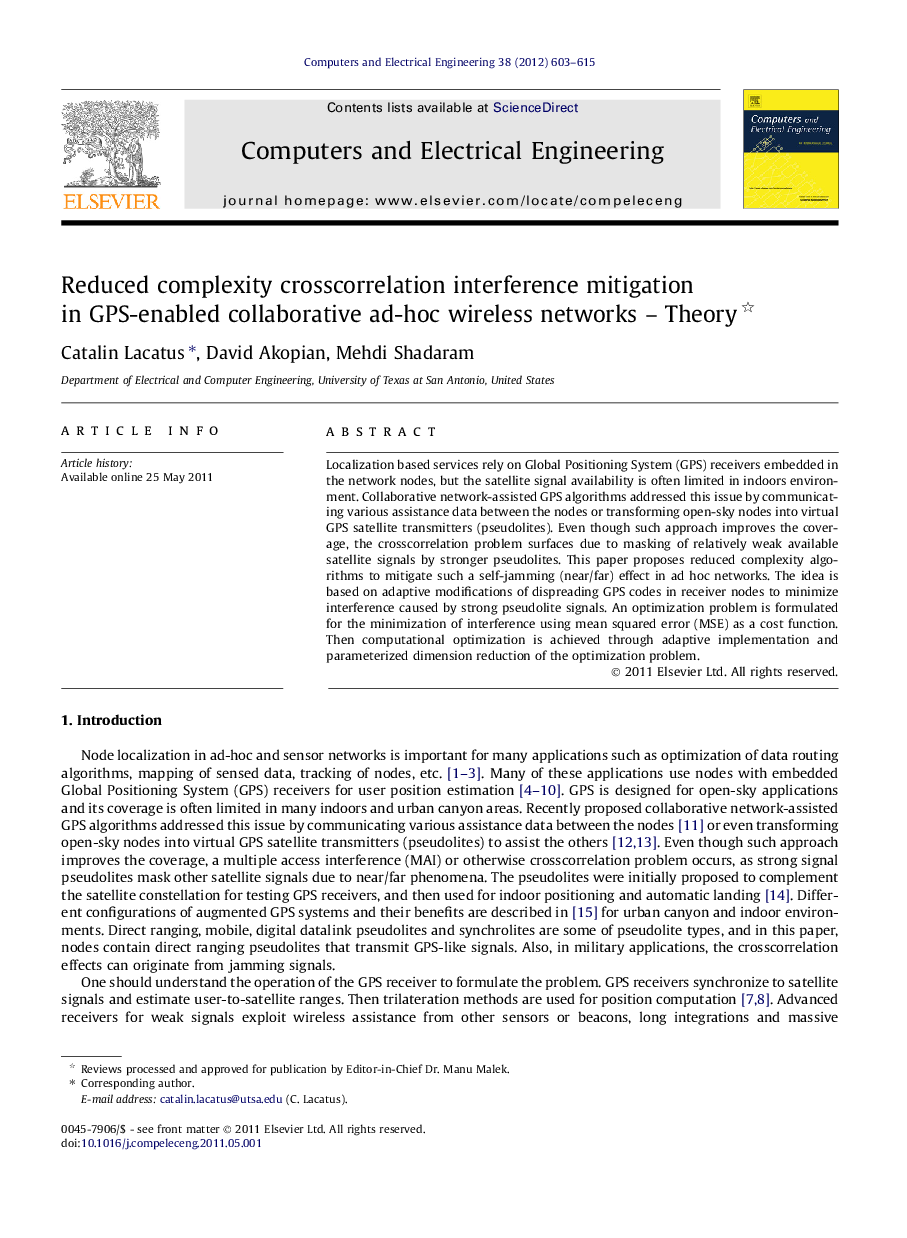| کد مقاله | کد نشریه | سال انتشار | مقاله انگلیسی | نسخه تمام متن |
|---|---|---|---|---|
| 455440 | 695370 | 2012 | 13 صفحه PDF | دانلود رایگان |

Localization based services rely on Global Positioning System (GPS) receivers embedded in the network nodes, but the satellite signal availability is often limited in indoors environment. Collaborative network-assisted GPS algorithms addressed this issue by communicating various assistance data between the nodes or transforming open-sky nodes into virtual GPS satellite transmitters (pseudolites). Even though such approach improves the coverage, the crosscorrelation problem surfaces due to masking of relatively weak available satellite signals by stronger pseudolites. This paper proposes reduced complexity algorithms to mitigate such a self-jamming (near/far) effect in ad hoc networks. The idea is based on adaptive modifications of dispreading GPS codes in receiver nodes to minimize interference caused by strong pseudolite signals. An optimization problem is formulated for the minimization of interference using mean squared error (MSE) as a cost function. Then computational optimization is achieved through adaptive implementation and parameterized dimension reduction of the optimization problem.
Figure optionsDownload as PowerPoint slideHighlights
► We address the self-jamming effects in enhanced GPS sensor networks.
► The idea is based on adaptive modifications of dispreading GPS codes in receivers.
► The mean squared error is the receiver convex cost function in the dispreading code.
► We provide trade-off between the receiver complexity and interference suppression.
► The proposed algorithms are suitable for software radio implementations.
Journal: Computers & Electrical Engineering - Volume 38, Issue 3, May 2012, Pages 603–615